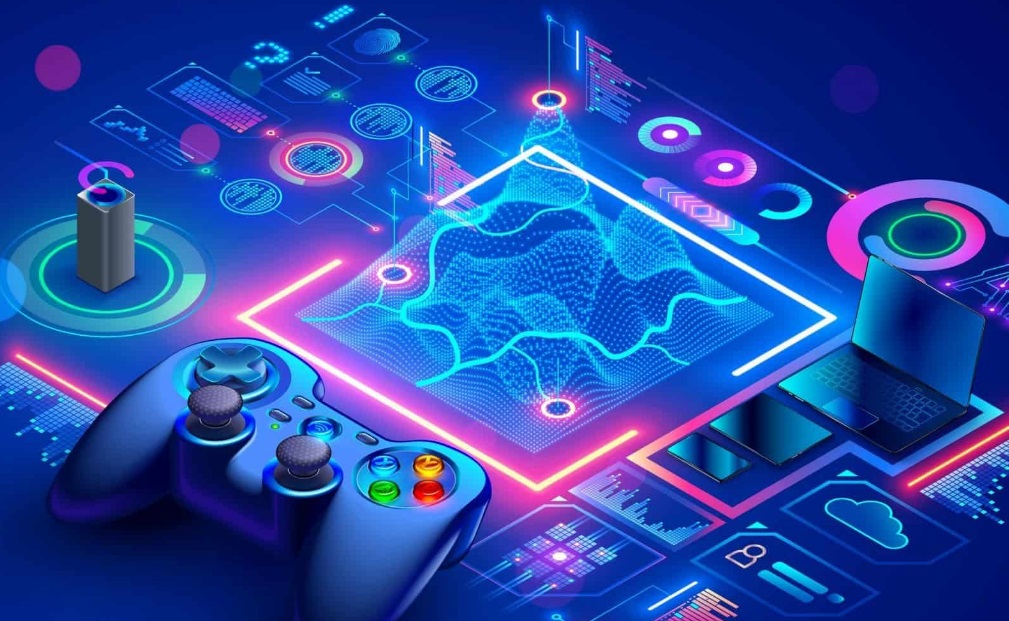How is AI Affecting Gaming Industry?
With AI technologies rapidly advancing, game developers are harnessing the power of machine learning, natural language processing, and computer vision to create immersive gaming experiences that blur the line between reality and fantasy.
In this article, we will delve into the profound impact of AI on the gaming industry, exploring how it is shaping game design, player experiences, and even changing the way games are monetized. We will examine how AI-driven analytics are being used to personalize in-game content for individual players, as well as how AI-powered procedural generation is redefining open-world exploration.

Evolution of Game Development
AI is revolutionizing the gaming industry in a multitude of ways. Firstly, AI-powered chatbots and virtual assistants are enhancing customer service and engagement by providing personalized interactions and immediate support. Secondly, AI algorithms are being used to generate dynamic and responsive non-player characters (NPCs), creating more realistic and immersive gaming experiences.
According to ExpressVPN, AI is being utilized to analyze player behavior and preferences, allowing for the customization of game content to better suit individual players. AI is enabling more sophisticated opponent behaviors in multiplayer games, leading to enhanced competitive gameplay.
Enhanced User Experience
AI has had a substantial impact on the gaming industry by enhancing user experience in various ways. One key area of improvement is in the realm of personalized gameplay, as AI algorithms can analyze player behavior and preferences to tailor game experiences accordingly. This allows for more immersive and engaging gaming experiences that adapt to individual player styles.
AI in Game Design and Mechanics
In game design, AI is enabling developersto create more dynamic and realistic games by generating lifelike environments, characters, and behaviors. This allows for more immersive gameplay experiences that adapt to the player's actions.
In terms of game mechanics, AI is being used to create sophisticated non-player characters (NPCs) that exhibit intelligent and adaptive behavior. This can include NPCs who learn from the player's actions, make strategic decisions, and provide a more challenging and engaging gameplay experience.
Personalized Gaming Experiences
Game designers are leveraging AI algorithms to create more immersive and dynamic gaming experiences. These algorithms can generate procedurally generated content, such as worlds, levels, or quests, which adds variety and complexity to games.
AI is being used to develop more intelligent non-player characters (NPCs) that exhibit realistic behaviors and adapt to player actions. This enhances the overall gaming experience by providing more challenging and engaging interactions.
AI in Game Testing and QA
AI has had a significant impact on the gaming industry, particularly in the field of Game Testing and Quality Assurance (QA). With the use of AI-based testing tools and algorithms, game developers can now automate various aspects of QA, such as bug detection, performance testing, and even player behavior analysis. This has led to more efficient and thorough testing processes, reducing the time and resources required for manual testing.
AI has enabled the creation of intelligent agents that can playtest games autonomously, providing valuable insights into gameplay balance and user experience. These AI agents can simulate different types of players, helping developers anticipate and address potential issues before the game is released.
Future Implications and Innovations
Artificial intelligence is revolutionizing the gaming industry with its future implications and innovations. AI is being used to create more immersive and realistic game environments, enhancing both online and offline gaming experiences. AI-driven character behaviors can adapt in real-time to player actions, providing a more personalized and dynamic gameplay experience.
Conclusion
In conclusion, the integration of AI in the gaming industry has already had a profound impact on how games are developed, played, and experienced. From personalized game experiences to more realistic and immersive environments, AI has revolutionized the gaming landscape. As technology continues to advance, we can expect even greater innovations in AI-driven gaming, including enhanced virtual assistants, adaptive gameplay, and more sophisticated storytelling.
You should read it
- Top best gaming desktops
- 5 best gaming mice in 2024
- 5 reasons not to buy a gaming laptop
- Ranked 25 fastest gaming laptops
- 5 best gaming keypads in 2024
- Top 7 best gaming laptops in 2021
- Top 10 best gaming screens under 5 million
- Top 10 Best Gaming Laptops 2020
- T-Mobile announces the 5 best smartphones for gaming, guess what device will stand the list?
- Does more RAM make a difference in gaming performance?
- 6 best PS4 keyboard and gaming combos
- Top 9 best cheap gaming mice 2019
May be interested

Microsoft rebranded Bing Chat as Copilot to compete with ChatGPT

300 million full-time jobs could be lost to AI

Why were new ChatGPT registrations stopped? When will it reopen?

How to automate document creation with ChatGPT in Microsoft Word

Is ChatGPT accessible with a VPN?

Top 7 AI Prompting Courses To Do In 2023






 How almost all mobile gaming companies start off small and grow
How almost all mobile gaming companies start off small and grow The Impact of Technology on the Casino and Gaming Industry
The Impact of Technology on the Casino and Gaming Industry Top trends in game development
Top trends in game development How Bingo Spearheaded the Modern Mobile Gaming Industry
How Bingo Spearheaded the Modern Mobile Gaming Industry Technology Driving the Casino Industry
Technology Driving the Casino Industry The most reliable payment methods for gaming online
The most reliable payment methods for gaming online